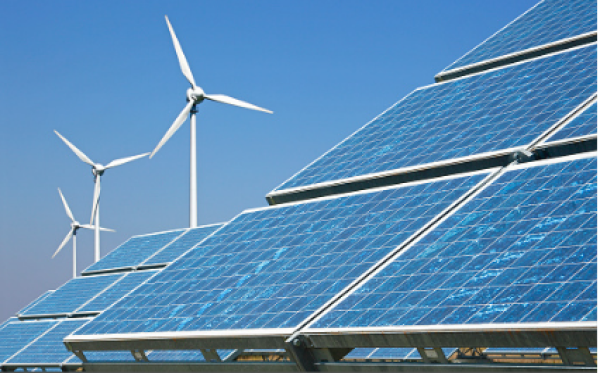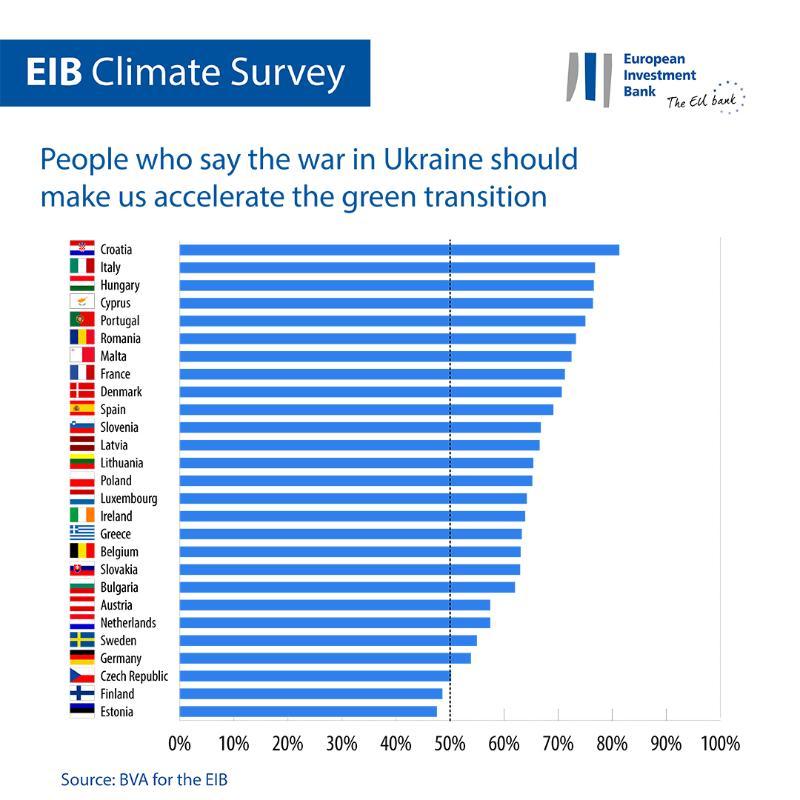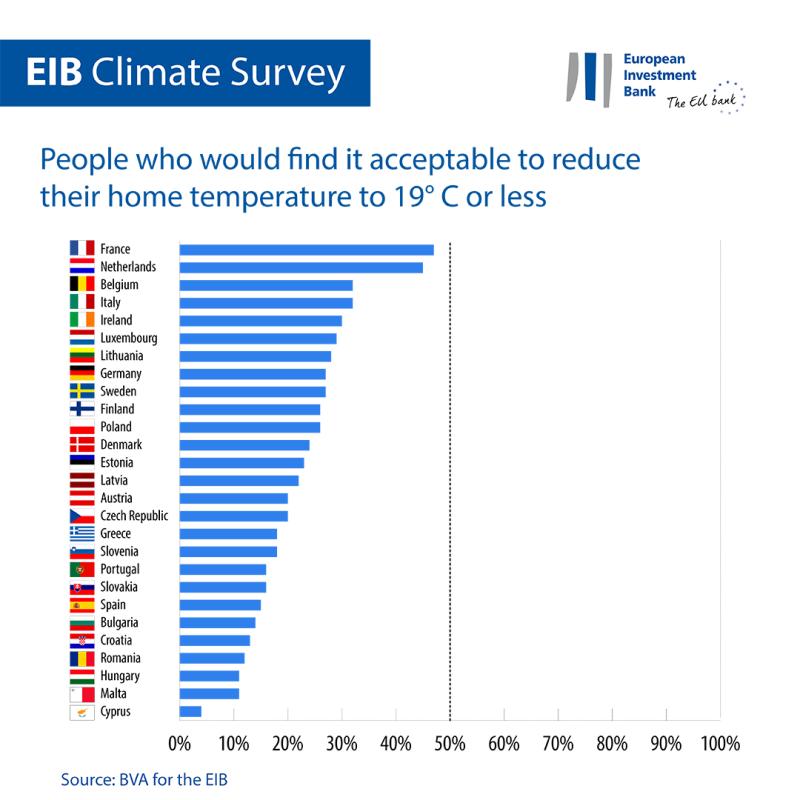
- 64% believe that the Russian invasion of Ukraine and its consequences should provide an impetus to accelerate the green transition
- 86% say that if we do not drastically reduce our consumption of energy and goods in the coming years, we will be heading for a global catastrophe.
- 61% want polluting activities, such as air travel and SUVs to be taxed more heavily to account for their environmental cost
These are some of the results from the latest yearly Climate Survey conducted in August 2022 and published today by the European Investment Bank (EIB). The EIB is the lending arm of the European Union and the world’s largest multilateral lender for climate action projects.
After a challenging year where Russia’s invasion of Ukraine sparked an ongoing energy crisis and accelerated inflation all over Europe, and a summer of extreme marked by record heatwaves and droughts, The Irish people have become even more acutely aware of the impact of climate change and the urgency to act.
Climate change awareness and urgency
While Covid-19 was considered the number one challenge facing the Irish people last year, concerns over inflation now dominate, with 80% citing it as their top concern.
Meanwhile, 71% of Irish people now say they feel the effects of climate change on their daily lives.
86% of the Irish say that if we do not drastically reduce our consumption of energy and goods in the coming years, we will be heading for a global catastrophe. At the same another 86% feel that government is too slow in acting, and only 31% think that Ireland will succeed in substantially reducing its carbon emissions by 2030.
War in Ukraine and green transition
Nearly two-thirds of Irish people (64%) say that the war in Ukraine and its consequences on the price of oil and gas should provide an impetus to accelerate the green transition (close to the EU average of 66%).

When asked to rank the priorities of actions, the Irish expect their government to prioritise the development of renewable energies (49%) before focusing on energy supplies diversification to avoid being overly reliant on a single provider (31%).
Energy savings is also becoming a priority. Part of the Irish believe that citizens and companies must do more to reduce their own consumption (20% vs. 19% for the EU average). This is especially the case amongst younger generations (27% among 15–29 year-olds Irish).
Tackling climate change and addressing high energy prices
To reduce energy consumption, the Irish want polluting activities, such as air travel and SUVs to be taxed more heavily to account for their environmental cost (61%).
If the Irish were to lower the temperature in their homes this winter, 31% of them would accept to cap it to 19°C, which is the official recommendation (-4 points vs. UK, where 35% of British people would accept to do so, but 3 points above the EU average of 28%). Meanwhile 39% of the Irish say that they can already not afford to heat their home properly.

Finally, on addressing the high energy prices, the Irish think that in the short term, the government should cap or regulate the prices of gas, oil and coal (34%, 43% among far-left sympathisers). They equally say that reducing energy-related taxes (33%) would help fight energy prices inflation.
EIB Vice-President Christian Kettel Thomsen stated: “Ahead of the COP27 climate conference, the results of the EIB 2022 Climate Survey show that the Irish believe that developing renewable energy should be the priority to fight the global energy and climate crisis. At the EIB we have been supporting innovative clean energy investments for many years, such as floating wind farms and more energy efficient social housing. We stand ready to use our full range of advisory and financial instruments to support Ireland in a just green energy transition that leaves no one behind.”
About the EIB Climate Survey
The European Investment Bank has launched the fifth edition of the EIB Climate Survey, a thorough assessment of how people feel about climate change. Conducted in partnership with market research firm BVA, the fifth edition of the EIB Climate Survey aims to inform the broader debate on attitudes and expectations in terms of climate action. More than 28 000 respondents participated in the survey in August 2022, with a representative panel of people aged 15 and above for each of the 30 countries polled.
About the European Investment Bank (EIB)
Since 2019, it has accelerated its transformation into a climate bank by committing to devoting at least 50% of its financing from 2025 to investments that contribute to the fight against climate change and the mitigation of its effects.
About BVA
BVA is an opinion research and consulting firm recognised as one of the most innovative market research firms in its sector. Specialised in behavioural marketing, BVA combines data science and social science to make data inspiring and bring it to life. BVA is also a member of the Worldwide Independent Network of Market Research (WIN), a global network of some of the world’s leading market research and survey players, with over 40 members.